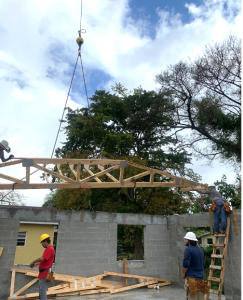
A global pandemic hit, millions of lives and jobs lost, the U.S. economy all-but crashed, and… the
Miami real estate market boomed? As counterintuitive as it may sound, this is the reality of the Miami commercial and residential real estate market during the latter half of the Covid-19 pandemic. According to statistics released by the Miami Association of Realtors, when comparing January 2021 to January 2020, Miami-Dade County total home sales jumped 19.1% and single-family home sales increased 9.1%, denoting a resilient real estate market.
Homeowners, who would have typically sold their homes sans a pandemic, decided to hunker down as a precaution in 2020. There are various factors that have more recently encouraged homeowners to rid their fears and sell their Miami homes. Given this optimistic market, the burning question becomes: should you buy a home in Miami in the middle of a global pandemic? The answer is maybe. Supply is low and demand is high for South Florida homes due to out-of-state buyers wanting to reap the benefits of
Florida’s record-low mortgage rates, high levels of safety for a big city, and few but effective
Covid-19 restrictions. These factors oddly enough simultaneously serve as the reason property values are rising but also the reason why investing in South Florida real estate right now could be a wise choice, regardless of these increased prices. Let’s briefly explore why.

Primarily, current record-low mortgage rates in Florida translate into a higher home-buying budget with lower monthly payments; essentially, even with higher home values, potential buyers are able to purchase more expensive homes while still maintaining lower monthly payments and ultimately less interest paid over time. Next, elevated gun crime rates across the nation have accentuated how safe living in Florida really is; while shootings in New York City went up 112% from 2019 to 2020, Miami saw the lowest homicide rate since 1954 in 2020. Finally, Florida has notoriously followed a least-restrictive-possible ideology when it comes to Covid-19 restrictions, helping the state thrive and stay open amidst this pandemic by avoiding unpredictable school and industry shutdowns that many other states have witnessed; Miami is the epitome of work hard, play hard and it has made no exceptions during a pandemic.

Miami’s resilience has been apparent throughout its history and is evident right now in its prosperous real estate market during these unprecedented times. While a thriving real estate market may seem unusual in the middle of a global crisis, there is good reason to believe that this could be the right time to purchase a home in Miami. So, at the end of the day, when considering whether you should buy a home in Miami in the middle of a global pandemic, of course it is good practice to contemplate your individual situation, weigh out costs and benefits, and plan ahead. However, given these extenuating circumstances, it is also essential to not let the fear of the world’s status quo become a roadblock to carrying out a deal because, as Albert Einstein once said, “in the middle of difficulty lies opportunity.”



 A global pandemic hit, millions of lives and jobs lost, the U.S. economy all-but crashed, and… the
A global pandemic hit, millions of lives and jobs lost, the U.S. economy all-but crashed, and… the 
